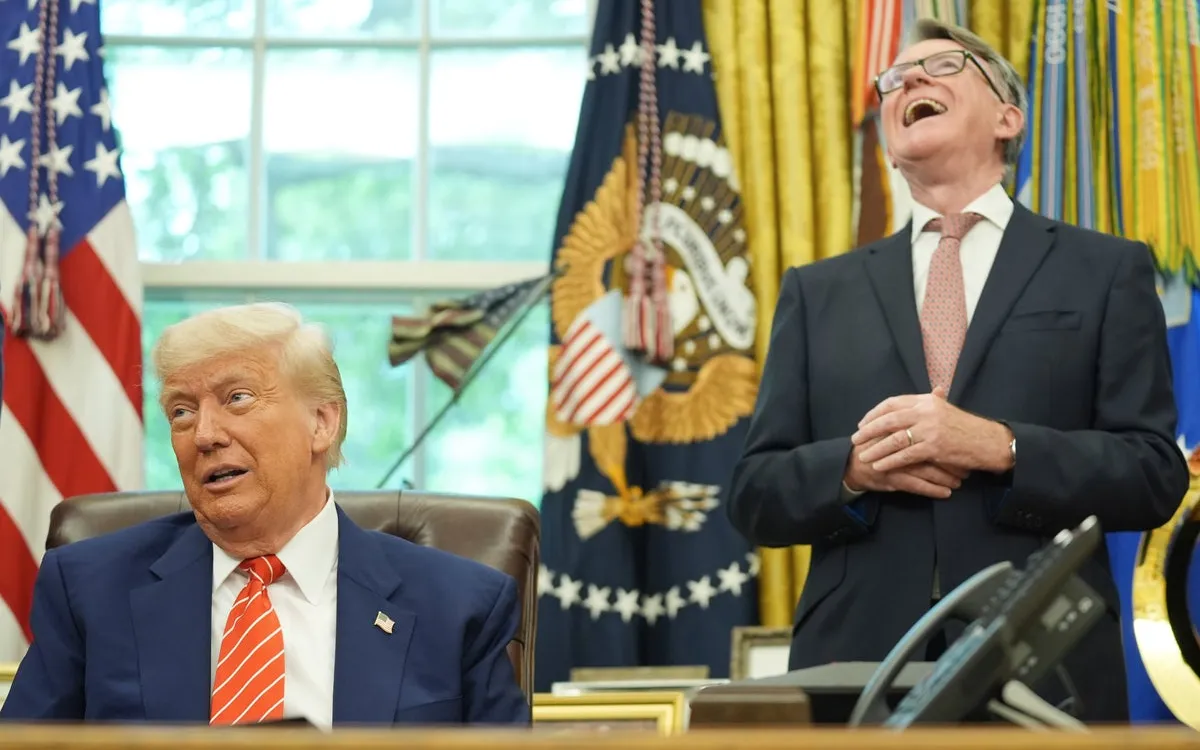
More than a month after Donald Trump ignited the global economy in an effort to rebalance America’s trade relationships, the self-proclaimed master negotiator has finally secured his first trade agreement. This deal, however, comes as a surprise considering that the premise of Trump’s tariff strategy was built on the belief that other countries were “taking advantage” of the United States. Notably, his first agreement is with the United Kingdom, one of the few nations with which the U.S. enjoys a trade surplus.
Despite the seemingly contradictory nature of this agreement, Trump was unfazed as he celebrated the deal at the White House. “We have a big economic security blanket, and that's very important, and we feel very, very comfortable with that, because it's been a great ally, truly one of our great allies,” he announced. Trump further emphasized the significance of the deal, stating, “It’s very conclusive and we think everyone’s going to be happy.” He also noted the interest from other countries, mentioning, “Many countries want to make a deal, and many countries are very unhappy that we happened to choose this one.”
This agreement with the U.K. may very well be considered the "lowest-hanging fruit" for Trump’s dynamic team, who are eager to negotiate deals at any cost. The U.K. has been actively seeking a U.S. trade agreement since its exit from the European Union in 2020. Likewise, Trump has been on the lookout for deals to bolster his administration's economic agenda, especially after promising to make “90 deals in 90 days” following his tariff rollout.
During a phone call with Trump, British Prime Minister Keir Starmer carefully framed the agreement, comparing the increased availability of American beef to historical victories during World War II. “You may or may not know, but it was about this time of day exactly 80 years ago that Winston Churchill announced victory in Europe,” he said, invoking one of Trump’s favored historical figures. The call continued with an outpouring of praise for Trump’s leadership in striking a deal that would remove tariffs on British steel while maintaining a general 10 percent tariff on other goods. Analysts, however, have pointed out that this agreement may leave Britain slightly worse off than before Trump's tariff initiatives.
As the announcement progressed, Trump embodied a typical car salesman, attempting to convince citizens on both sides of the Atlantic of the deal's advantages. Surrounded by trade advisors and British representatives, he was questioned about the potential for overhyping the agreement. In response, he stated, “I think that it's a great deal for both parties.” Trump’s remarks were filled with vague assertions about the U.K. being a crucial trading ally while also suggesting it was somewhat isolated in its market access.
For British consumers, there are mixed prospects. They may gain greater access to American beef, cars, and ethanol, but concerns loom regarding food standards. Trump mentioned the involvement of Robert F. Kennedy Jr. and hinted at possible changes to food regulations, stating, “As you know, Bobby Kennedy is doing a tremendous job, and he's, I think, probably heading toward your system with no chemical, no this, no that.”
As the threat of a recession looms, imports are dwindling, and inflation is creeping in, Trump acknowledges that he needs more than just one deal to mitigate the fallout from his previous economic decisions. He assured reporters that more trade agreements are in the pipeline, particularly with China. “We have numerous deals,” Trump claimed, although his enthusiasm seemed unconvincing. He noted, “It only matters what happens in that room. But I will tell you that China very much wants to make a deal. We'll see how that works out,” signaling potential future negotiations.